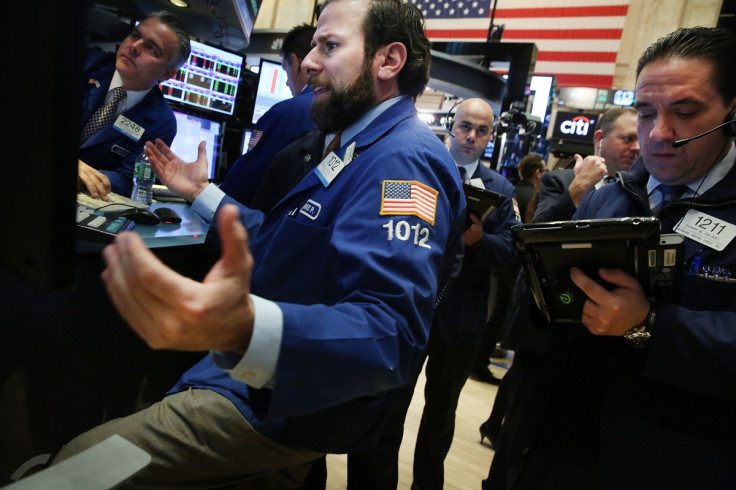Market turmoil: Gold rush as Wall Street stocks plummet following global China panic

Persistent worries about the turmoil in China hit Wall Street hard again on 7 January, with the Dow Jones Industrial Average closing down -2.32% or 392.41 points, to 16,514.10, having lost more than 900 points since the start of 2016, its worst ever start to the year.
Meanwhile, the S&P 500 index SPX fell -2.37% to 1,943.09 and the Nasdaq Composite was down -3.03% or 146.34 points, to close at 4,689.43.
Markets across the globe have fallen as a result of problems in China's economy. Several macroeconomic indicators covering multiple sectors suggested the country has not managed to stem the slowdown of its economy. Meanwhile, oil benchmarks hit their lowest points since 2004 with both Brent Crude and West Texas Intermediate trading below $33 (£23, €30).
"Given the weak sentiment in the markets at the moment, I struggle to see this being reversed before the end of the week, particularly when considering that the ban on selling for large investors expires on Friday," Craig Erlam, senior analyst at Oanda, said.
"Of course, this will be replaced with restrictions on selling but this could still add to the downward pressure on the final trading day of the week. Moreover, given the fragile sentiment in the markets at the moment, the mere knowledge that a number of possible large sellers will return to the markets could be rather self-fulfilling."
Gold also passed $1,100 per ounce, pushed up by US investors more bearish on China. Seen as a safe-haven investment, gold often increases in value in financially uncertain times. The price of gold, at a six-year-low in mid-December 2015, has risen in recent weeks.
"Gold is one of the few commodities performing well in these markets, benefiting from its safe haven appeal, which has been absent at times over the last 18 months, or so," Erlam said.
Trading in China was stopped for the second time this week after circuit breakers of the Shanghai Composite Index were triggered 29 minutes into the session when the its fall reached 7%.
The downfall of Asian markets triggered further turmoil in Europe. In late afternoon trading, Rangold Resources was the only FTSE 100 company not in the red. The bluechip index fell more than 2.7% in mid-afternoon trading, dipping below the 6,000-point mark.
French shares were also in the red on the anniversary of the Charlie Hebdo attacks in Paris, with the CAC 40 falling more than 2.7%, reflecting the pan-European Eurostoxx. The DAX in Germany was down even further adrift at 3.2% down.
© Copyright IBTimes 2025. All rights reserved.




















